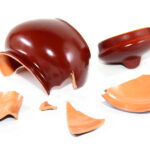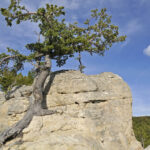This past week my housemate and I took off with two dogs for the Oregon coast for a three-day celebration of my ninetieth birthday. We’d done the same thing in June for my housemate’s eightieth. As we waited for the ferry, my housemate fell. Shaken up and bruised but okay, we continued. We took back roads to avoid the cities, generally a good decision, but this time the road was filled with tree-trimmers and construction delays. We arrived at a lovely cabin much later than planned to find we had neither Internet, which we knew about, nor cell service. Ill at ease, we continued, though loose rugs and steps without banisters seemed far more dangerous than before. A day passed. Then our fourteen-year-old basenji had a seizure, canceling out our birthday dinner reservation. We decided to pack up and go home—a six-hour trip into the wee hours of morning. But here we are, more than happy to be gazing out at Puget Sound, catching up on birthday wishes, gifts, and reconnecting with life in general. Lesson learned. We are not as tough or self-reliant as we used to be. Accept, Cope. This is old age.
The positive side of the week, by hindsight, is that we did cope, or, to put it more strongly, we found we still can cope. For many years, psychologists have focused on self-esteem, emphasizing positive feedback, frowning on criticism, and condemning physical punishment. I’ve often wondered how this advice prepares children to cope with a world that will inevitably hand out weeks like ours above. A recent encounter with a young adult who became paralyzed when we shouted a warning to her out-of-control dog, was not reassuring. “You yelled at me!” she gasped, totally immobilized. Self-esteem that depends on positive feedback only is fragile and without mechanisms to deal with fear and pain. I wonder how children today will deal with adolescence—to say nothing of adulthood—in the brutal age of social media. Research shows that a third of college graduates still live at home. That and the soaring suicide rates of teens and young adults suggests a tragic lack of preparation.
Both my housemate and I grew up in an age when childhood was focused on preparation for adulthood. We learned to cook, sew, clean house, and tend to babies and younger siblings—a far different life than today’s children who are programmed by adults into activities that, it is assumed, will assure a prosperous life. Summer jobs were our preparation. When I hear of young employees who simply fail to show up for work or announce that they don’t like to be told what to do, I’m convinced something vital has been missed in their upbringing. That women no longer plan on becoming housewives is not the point. Such tasks built confidence that we could perform adult activities, and carry adult responsibilities. That is self-esteem.
As a teacher of college freshmen, I was witness to hundreds of first flights—that first taste of freedom leaving home provides. Many students give credence to the research that claims humans, particularly males, do not develop judgment until their twenties, but many of my students, particularly those on scholarships, felt their responsibility for the cost of their education and behaved accordingly. Those students were unanimous in their judgment that the out-of-control group \were those who had either not carried or not been given the freedom to develop the independent judgment necessary for maturity. For both of these latter groups, college is one big party, and for both, the first term grades are a heavy consequence.
As a parent, I gave my girls more freedom than I had in what seemed an over-burdened childhood, but we still viewed our efforts as creating responsible adults. I thank fortune that we raised them before the Internet arrived to complicate their lives, and I don’t claim to have avoided all of the pitfalls of parenthood, and there are many. I was blindsided by my husband’s departure and would never have put my girls through that experience if I knew how to avoid it. But today, I look back on those rough years and know it left them stronger. My younger daughter did not live to reap the benefits of that strength, but she survived long enough to believe in herself, and her sister and I have carried that with us. Surviving her death has been my greatest ordeal. But self-esteem is knowing you can survive.



Comments are closed.